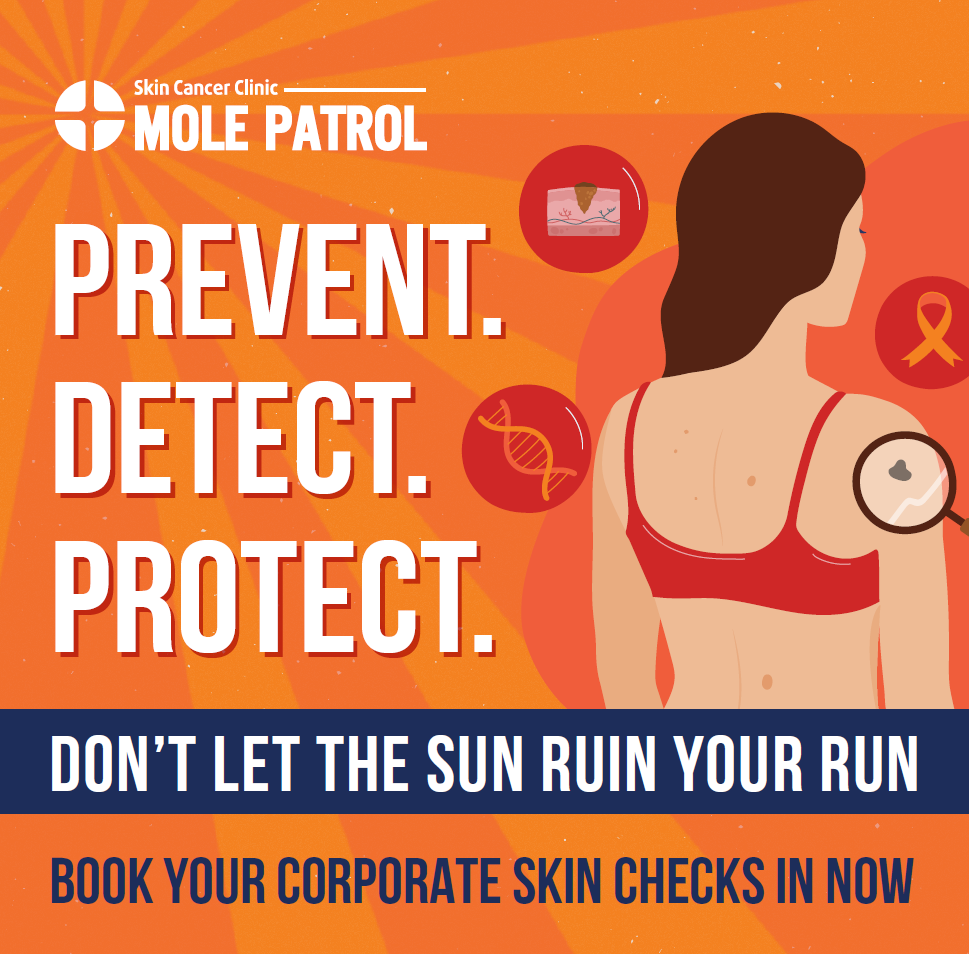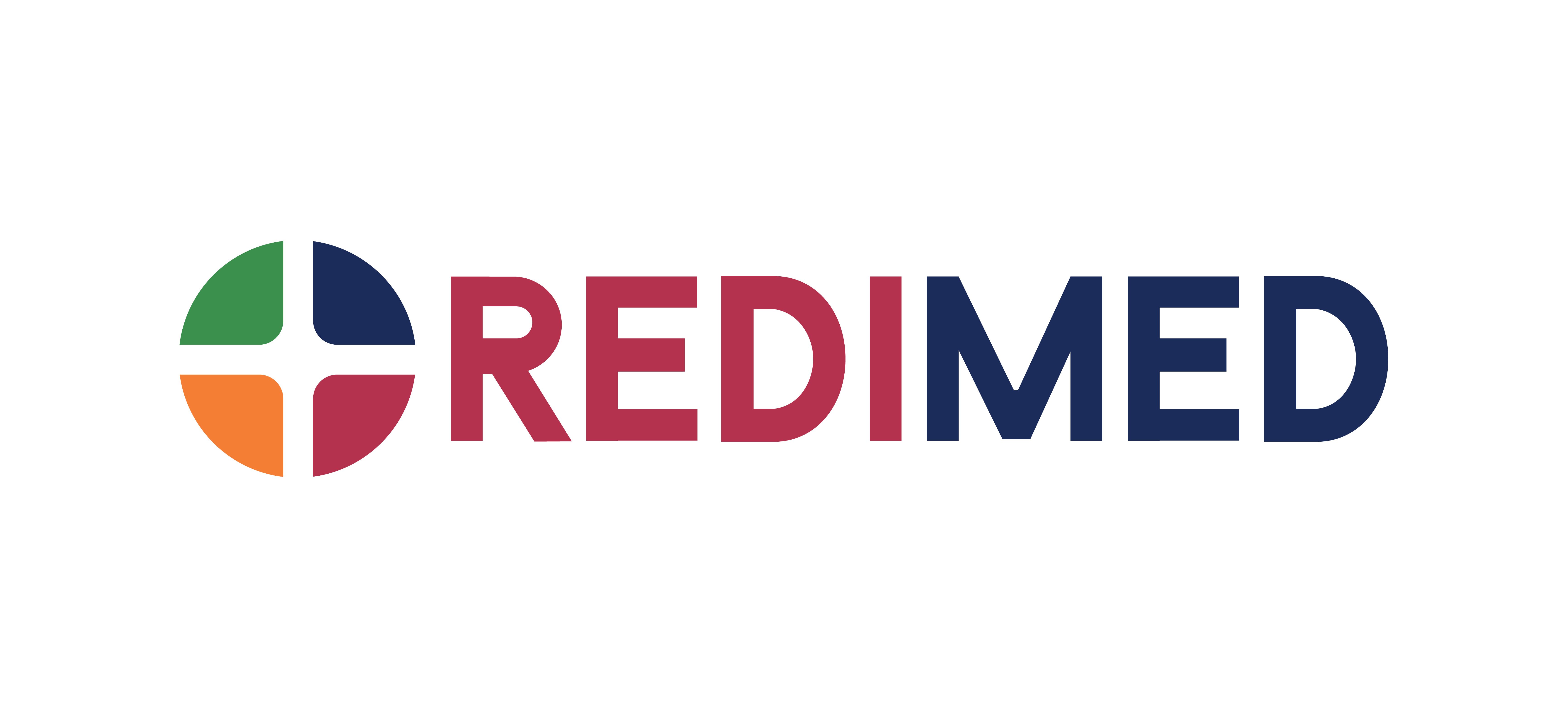Skin Cancer Checks
Screen your employees for skin cancers and precancerous lesions with our on-site skin check service.
Trusted by leading Australian employers.









Get Your Workforce Checked
Australia is a sun-soaked continent – and it shows in our workers’ compensation statistics.
Melanoma is the most dangerous and aggressive type of skin cancer witih 18,257 new cases diagnosed and over 1300 deaths in 2023.
If your workers are exposed to sunlight at work – even on an intermittent basis – investing in regular skin checks is critical.
Studies show that indoor and outdoor workers may actually have similar levels of melanoma risk, despite their differences in overall UV exposure.
As your end-to-end workforce health partner, we’ll work with you to establish a skin health plan for your employees, which includes regular skin checks and managing sun-related risks.
Take advantage of our winter special to receive 20% off for skin check bookings in June, July or August.
Why Choose RediMed?
We have a dedicated skin cancer unit called Mole Patrol. Mole Patrol formed in March 2018 with a primary goal to save lives by making skin cancer-related health care affordable and accessible for everyone. Over the years we have worked hard to bring together experienced and respected plastic surgeons, doctors and medical practitioners with significant experience in the skin cancer field.
You can rest assured that by using our Mole Patrol services, you will be in good hands.
Our experienced and qualified skin cancer doctors ensure you receive the highest quality of care and reporting.
Precancerous lesions are imaged and saved in each patient’s file, allowing us to track changes that occur between skin checks.
Our skin cancer unit includes experienced doctors, specialists and skin surgeons – one team for early detection and surgical treatment.
Our convenient mobile skin check units can deploy to your offices or work sites, minimising time off work for your employees.
Put Your Health First
We offer a comprehensive mobile onsite screening service for your employees. We can visit your premises or worksite with our team of highly skilled skin specialists and screen your workforce for skin cancers.
Types Of Skin Check Services
Skin Check
Skin Biopsy
Cancer Treatment & Surgery
Laser Skin Treatement
Follow Up
Mobile Skin Clinics
How A Skin Cancer Check Works
Here’s what happens once you’ve booked an employee’s skin cancer check through the Mole Patrol portal.
Your employee will undergo a full-body skin check by a doctor or specialist in our skin cancer unit.
Each check is conducted under specialised lighting with market-leading dermatoscopy equipment.
Where possible, we match patients and practitioners of the same gender.
Our practitioner will biopsy any suspicious moles and analyse each tissue sample under a high-powered microscope (histological diagnosis).
If cancer is detected, we’ll advise both you and your employee as soon as possible.
We’ll then work with you both to develop an appropriate treatment plan, which may include surgery and other, more complex interventions.
Bundle Flu Shots And Skin Checks
Need flu shots and skin cancer checks for your workforce? Order both together and get 5% off.
Why Skin Checks Matter
Skin checks help keep your employees healthy, but they also reduce the risk of workers’ compensation and common law claims.
If an employee gets skin cancer as a result of their workplace activities, your insurer may have to pay for their treatment.
Regular checks can identify precancerous lesions – which can be excised by one of our specialist surgeons.
They can also identify opportunities to improve sun safety in your workplace, making it easier to protect your workforce and keep medical costs to a minimum.


Skin Cancer Checks FAQs
Employees in high-risk roles, such as those who work outdoors, should undergo skin checks every six months. Employees with intermittent workplace sun exposure should be checked every 12 to 18 months, depending on where in Australia they work.
Talk to your dedicated relationship manager to formulate a customised skin health plan for your workforce.
You can manage the risk of skin cancer among your workers by:
- developing a tailored skin health plan in coordination with your workforce health partner
- identifying high-risk roles and situations through the use of job dictionaries
- investing in sun-safe PPE, such as UPF 45+ long pants and shirts, broad-brimmed hats, and wraparound sunglasses, for outdoor workers
- having broad-spectrum, SPF 50+ sunscreen freely available on site
- modifying or covering reflective surfaces, such as water, glass and concrete
- providing shaded areas for breaks
- where possible, establishing temporary shade over work sites
- tinting the windows of work vehicles and buildings
- scheduling any indoor work when UV levels are at their highest (such as the middle of the day and early afternoon)
- encourage workers to download the SunSmart app
- invest in regular skin health education sessions.
Skin cancer is an abnormal growth of skin cells caused by too much exposure to UV radiation (sunlight). It can manifest as small bumps, moles or lesions on your skin. While skin cancer is often visible in the parts of your body that are most exposed to the sun, like your face and neck, it can also develop on non-exposed skin.
The three main types of skin cancer are:
- basal cell carcinomas
- squamous cell carcinomas
- melanomas (the most dangerous kind).
Any unusual-looking skin lesions should be checked by an appropriately qualified medical practitioner. Even if a lesion isn’t currently cancerous, it could become malignant over time or with increased sun exposure.
If cancerous lesions aren’t treated, they can metastasise, spreading to other organs in your body. Metastatic skin cancer (also known as stage IV skin cancer) is an extremely serious condition and can be fatal.

